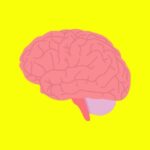For infants, the ability to recall what was previously learned depends on their mood, according to a new study by Ruhr-Universität Bochum.
In their findings, published in the peer-reviewed journal Child Development, researchers initiated experiments on 96 children at nine months old.
To get a better grasp as to the changes in mood and how it affects learning and memory among infants, the research group instructed a number of recruited caregivers to perform activities with their infants like reading picture books, for example.
After the first activity, the children were then tasked to watch an experimenter move around a hand puppet, subsequently learning how to replicate the performance.
“Just before the test started, some of the babies were put into the same state as when they were learning, while others were put into a different mood by playing the opposite games,” the co-authors noted, in a news release.
The German research group discovered that state-dependent memory could also exist in infants. In their study, the infants who had been in a different mood upon learning rather than when recalling what they had learned, were incapable of imitating any actions from the puppet performance.
If the infants were in a similar mood as when learning and recalling what they had learned, their memory performance would be significantly higher, the research group determined, based on their findings.
The results of their experiments could help explain why many adults are incapable of recalling any experiences from their early childhood.
“This shows that fluctuations in internal state at this age can prevent access to memory content,” said Sabine Seehagen, co-author of the study, in the news release.
“Further research will be necessary to explore how the relation between mood and memory develops with increasing age.”


